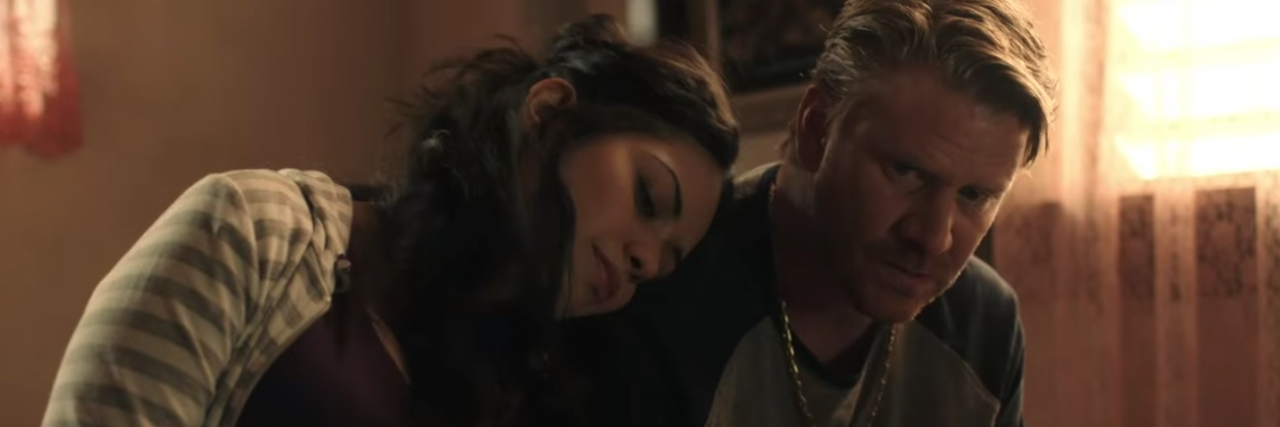Showtime’s “Ray Donovan,” a story about a family of Irish descent from Boston now living in California, typically filled with exciting celebrity cover ups and family disputes surprised us last night with its newest developing story: one about depression.
Last season the youngest of the Donovan brothers, Bunchy, married a strong female wrestler named Teresa. Her personality was that of a warrior woman, and she exuded all the confidence in the world when whipping her rather weak, meek boyfriend into husband material. Her character showed strength, understanding, forcefulness, and compassion. I’m sure I was not alone with fans of the show when I cheered for the union of the two characters and the discovery of Bunchy’s otherwise screw up of a character’s entry into manhood and responsibility.
Season four brings us the newly married couple’s pregnancy woes. While Teresa remains a strong, caring character throughout the pregnancy, her mood alters once the baby is born. This superhero of a character crumbles before our very eyes as she falls deeper and deeper into postpartum depression. We watch as she becomes hostile, silent, and eventually runs away from her new husband and infant.
While many still cannot understand the effects of depression, I found this show did an excellent job of showing how it affects those prone to it. Teresa becomes dejected, pushing away her family, laying around in her pajamas, and staring into space. She is incapable of caring for her child, and openly admits to thoughts of harming her entire family. Her way of resolving this is by leaving them alone. Though it can be construed as her abandoning them, one truly understands she is in absolutely no condition to take care of a helpless infant.
Last night’s episode shows Teresa placed in a mental institution because the relatives she’s been staying with can’t deal with her any longer. We learn she’s battled depression since childhood. Her husband is called after she’s been committed. He visits his wife who lies listless and vacant in her hospital bed. After seeing her he says, “It’s like she isn’t even there.” While her own blood relatives appear to have written her off as hopeless, her husband isn’t ready to give up on her. He says, “We don’t throw people away,” and returns to the hospital to find the woman he married. He tells her, “You’re my wonder woman,” before taking her home to care for her himself. There is no telling whether he will be able to pull Teresa from her depression, but what he did makes a powerful statement. He isn’t giving up on her, and he isn’t writing her off as an unfit mother. He’s aware she is dealing with an illness, and he is going to do whatever he can to make her the woman she is behind all the depression.
While so many can’t understand the pain felt by those who struggle with depression, last night’s episode did wonders to deliver an empathetic window into the world of postpartum. It’s a scary world of doubt, hopelessness, anger, anxiety, and loss of self. It’s understandable that there will be those out there who judge women who “abandon” their children, find themselves incapable of caring for their newborn or even for themselves; however, it’s important to know that those who struggle don’t feel like they have a choice. Teresa shows how even women who seem the most powerful and confident can be plagued by an illness that far surpasses their ability to overcome on their own.
Depression is not a sign of a “weak” person; it can affect anyone, any personality in a serious way. I commend the show on depicting the painful topic in a very real way, while helping the audience understand and empathize with people, especially new mothers, who struggle with the illness.

